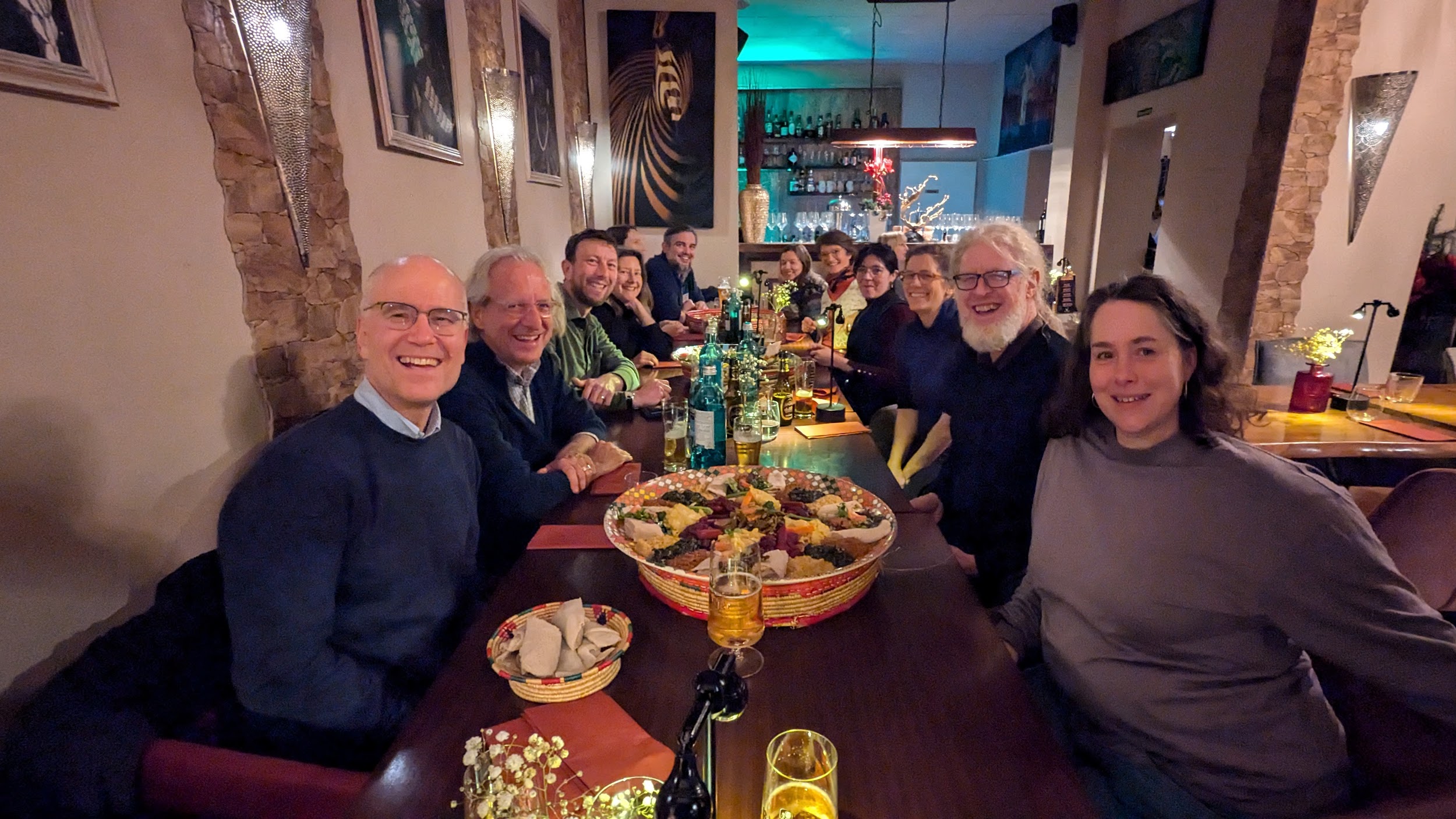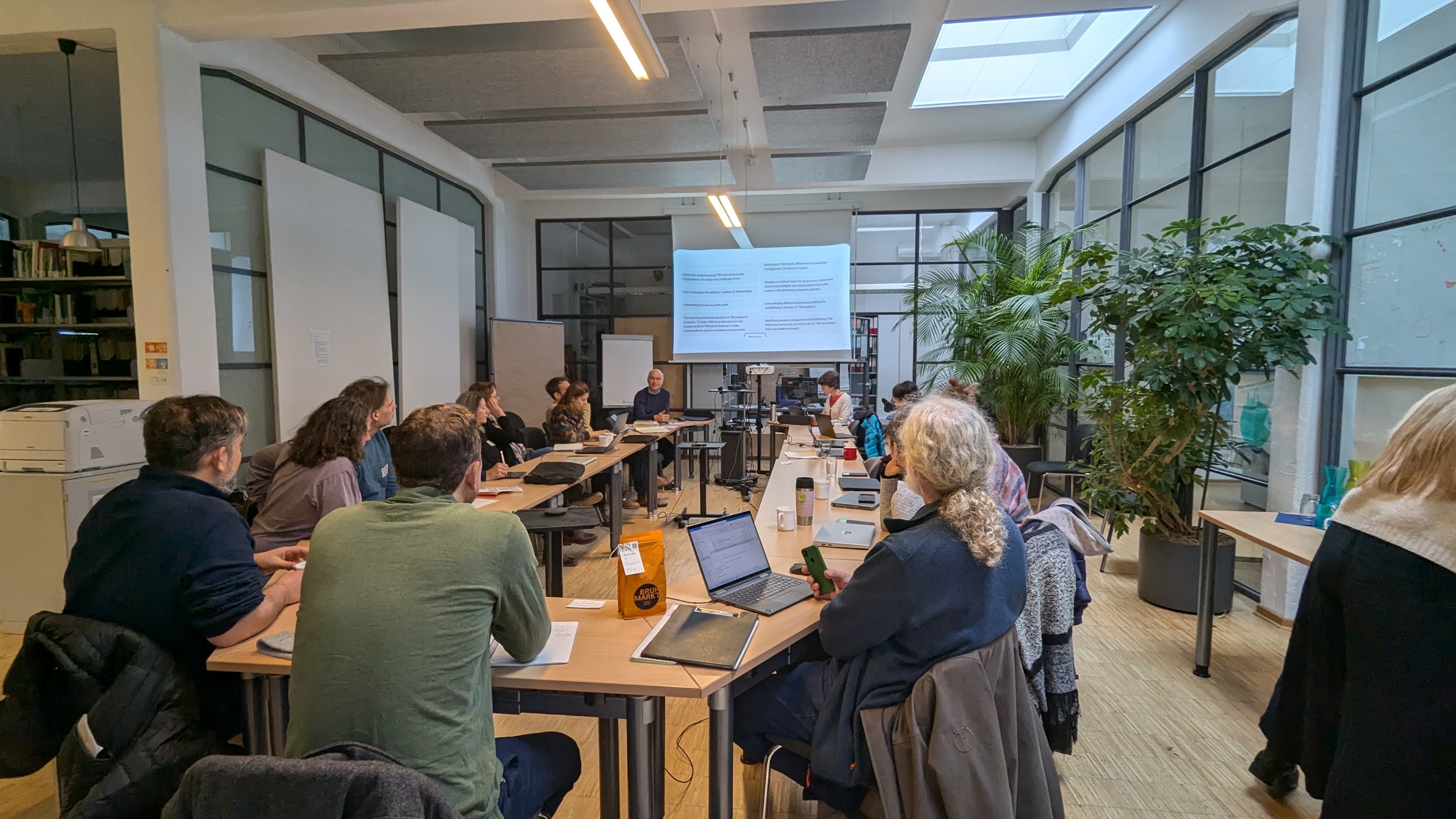By tdAcademy fellow group "Training Program for Transdisciplinary Interface Management (TIM)"
In an era marked by escalating climate change, biodiversity loss, and geopolitical conflicts, the urgency for effective sustainability solutions has never been more pronounced.
Addressing these multifaceted challenges demands a collaborative, or “transdisciplinary” approach between scientists and practitioners to co-create workable sustainability solutions. Yet, this collaboration can be difficult, as ways of working, timelines, and definitions of success are different for practitioners and scientists. There is also a risk that lack of expertise in transdisciplinary approaches can result in mismanaged partnerships or insufficient knowledge to help solve sustainability problems. To facilitate good collaboration, designated professionals called Transdisciplinary Interface Managers (TI-Managers) have been shown to provide critical services to manage such science-practice interfaces.
Training for Transdisciplinary Interface Managers
To support the professionalization of this role, a training program for Transdisciplinary Interface Management (TIM) has been developed. Its review through a group of international experts resulted in practical guidance for leaders wishing to support transdisciplinary sustainability research:
-
To build and maintain transdisciplinary interfaces (literal or metaphorical “places” where science and practice meet), leaders can endorse the interface publicly as well as within their organization (e.g., university or city). Specifically, leaders can help adjust internal procedures related to applying for and managing research funds to support transdisciplinary collaboration.
-
To staff the transdisciplinary interface, leaders can leverage specified responsibilities for two distinct, yet interrelated, roles. Institutional TI-Managers focus on creating good partnerships and institutional structures to facilitate collaboration between science and practice in the long term, such as dedicated centers or offices to support transdisciplinary research. Project-level TI-Managers concentrate on managing specific projects, fostering good collaboration (e.g., through meeting facilitation, communication, mediation) and goal-oriented collaboration (e.g., ensuring that the result of the collaboration is knowledge that can be used in the real world). In recognizing the complementary responsibilities among the two roles, leaders help set up a programmatic approach to overcome the pitfalls of the common project-based approach.
-
To build capacity in their organization, leaders can offer participation in this training opportunity. While some pioneering universities have begun to hire TI-Managers, many individuals in this role lack robust support structures and training programs.
tdAcademy Fellows and invited experts discuss demand for TIM Training. Frankfurt, 11 February 2025 (Credits: Transformational Sustainability Science Group)
Review Panel - International Fellow Group
The review of the draft training program included international experts experienced in managing a variety of transdisciplinary interfaces, such as:
-
Established interfaces have successfully supported collaboration between science and practice for years. They were represented by participants from the USA, including academia (Portland State University, Fletcher Beaudoin) and practice (City of Tempe, Dr. Braden Kay), as well as from Switzerland (ETH Zurich, Prof. Dr. Michael Stauffacher).
-
Evolving interfaces are redefining their approaches based on previous experience. They were represented by the University of Utrecht in the Netherlands (Geertje Speelman) and the Eberswalde University for Sustainable Development (Judith Möhring) as well as the National Autonomous University of Mexico (Tatiana Merino Benitez).
-
Emerging interfaces are building up their cooperation structures. They were represented by the Innovation Campus Sustainability (Dr. Nina Kulawik, Dr. Dörte Peters, Miriam Jordan), the Karlsruhe Institute of Technology (Dr. Felix Wagner), and the University of Freiburg with the Professorship for Finance, Controlling & Entrepreneurship (Prof. Dr. Stephan Lengsfeld) and the Humboldt Professorship for Sustainable Food Management (Prof. Dr. Arnim Wiek, Dr. David Sipple).

tdAcademy Fellows and invited experts gather to review core elements of TIM Training. Frankfurt, 10 February 2025 (Credits: Transformational Sustainability Science Group)
Efforts to Advance Transdisciplinary Interface Management (TIM) Trainings
This event was one of the early milestones in a series of efforts to advance such training. Additional efforts finalizing and testing the TIM Training Program, curating the Evidence from the Field video series, a key component of the program - as well as launching a Community of Practice on TIM.
In the Evidence from the Field video series, institutional and project TI-managers share their experiences on what leads to success or failure in managing transdisciplinary collaboration. The videos are available here. The TIM Training program is slated for its pilot phase in fall 2025. The Community of Practice is built around the TI-managers participating at the review workshop. It will re-launch in fall 2025 and be opened to other interested members.
The event was organized by Dr. Katja Brundiers and Alex Ramey, Transformational Sustainability Science Group and Prof. Dr. Arnim Wiek, Humboldt Professor for Sustainable Food Economy and co-lead of the group. It was graciously hosted by the Institute for Social-Ecological Research (ISOE) in Frankfurt, and supported through the Alexander von Humboldt Professorship for Sustainable Food Economy and the Fellowship Program of the tdAcademy.
For further information, please contact: Dr. Katja Brundiers, Co-Leader Transformational Sustainability Science Group, University of Freiburg (Katja.Brundiers [at] zv.uni-freiburg.de)
References
-
Brundiers, K., Wiek, A., & Kay, B. (2013). The role of transacademic interface managers in transformational sustainability research and education. Sustainability, 5(11), 4614-4636.
-
Krumm, C., Brundiers, K., Lang, D.J., Merino-Benítez, T., Wiek, A., & Lux, A. (2025, in review). Effectiveness of Transdisciplinary Interface Management in Sustainability Research. Sustainability Science.
-
Krumm, C. (2022). Institutional Development of Transdisciplinary Sustainability Research. The Role of Transacademic Interface Managers. [Master Thesis]. Leuphana Universität Lüneburg & Arizona State University.
-
Schneider, F., Wiek, A., Brundiers, K. et al. (2024). Institutionalisierung transdisziplinärer Forschung an Hochschulen. Forschungsantrag des Instituts für sozial-ökologische Forschung (ISOE) GmbH und der Universität Freiburg.

